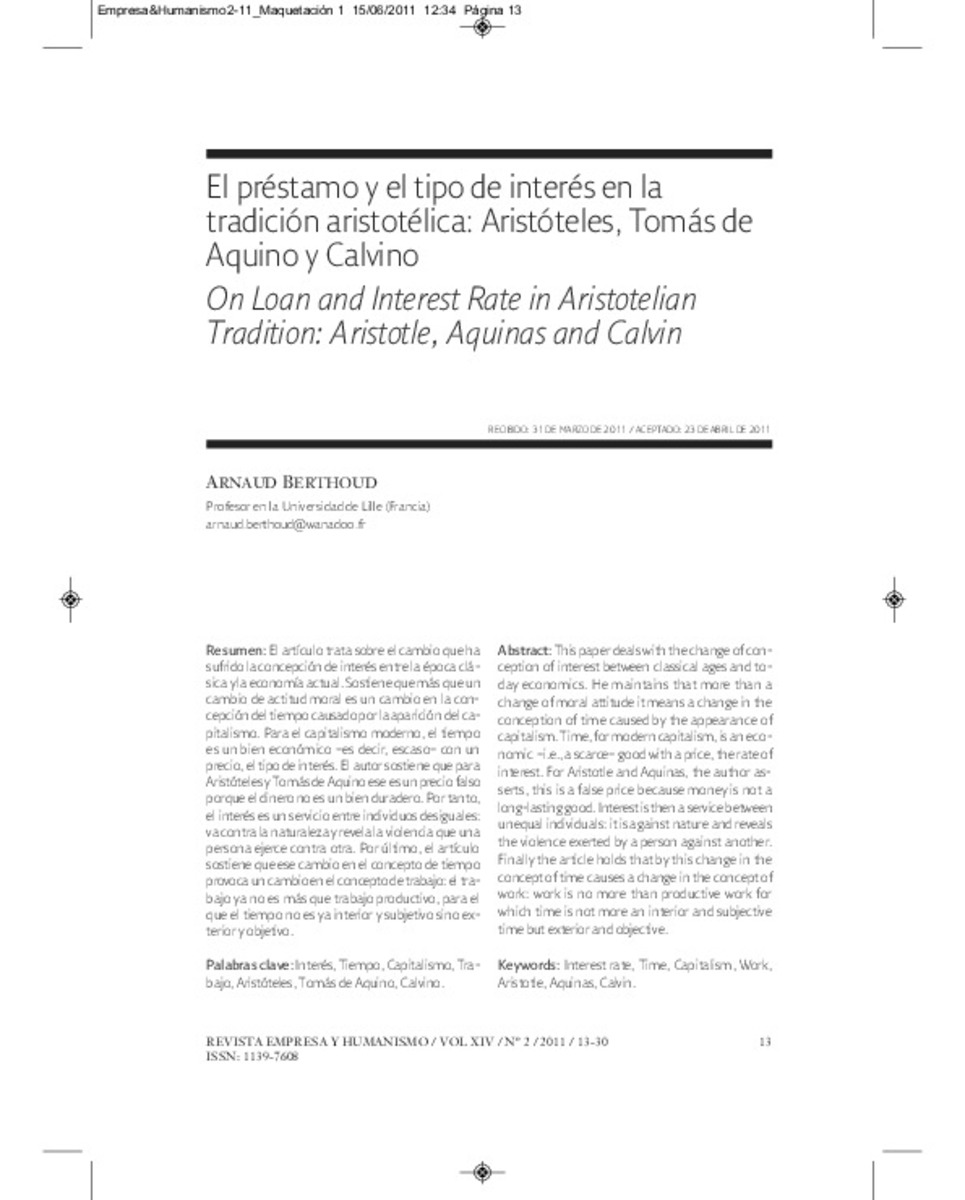El préstamo y el tipo de interés en la tradición aristotélica: Aristóteles, Tomás de Aquino y Calvino
Other Titles:
On Loan and Interest Rate in Aristotelian Tradition: Aristotle, Aquinas and Calvin
Keywords:
Capitalismo
Trabajo
Aristóteles
Tomás de Aquino
Calvino
Capitalism
Work
Aristotle
Aquinas
Calvin
Publisher:
Servicio de Publicaciones de la Universidad de Navarra
Citation:
Berthoud, Arnaud. ""El préstamo y el tipo de interés en la tradición aristotélica: Aristóteles, Tomás de Aquino y Calvino"". Revista empresa y humanismo. 2011, VOL. 14, Nº. 2, PÁG.13-30.
Statistics and impact
0 citas en

0 citas en

Items in Dadun are protected by copyright, with all rights reserved, unless otherwise indicated.







